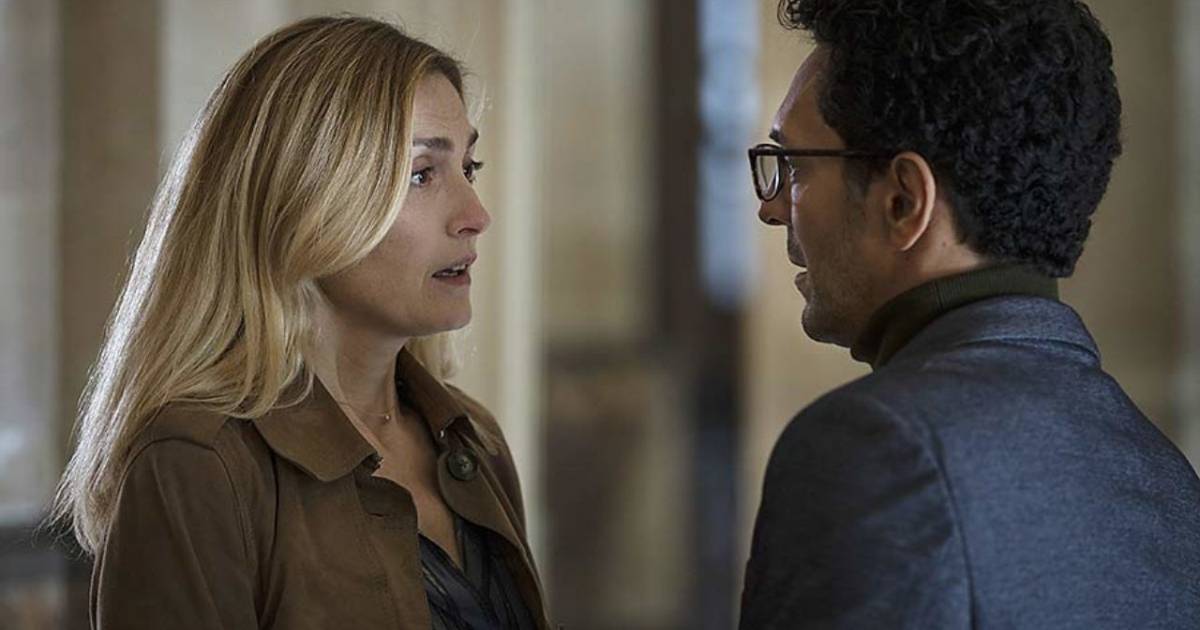The Perfect Mother (2024), directed by Aleshia Cowser Jackson, is a tense, emotionally charged psychological thriller that explores the desperate lengths a mother is willing to go—and what she’s capable of when her worst fears come true.
The story centers on Linda (Shavonia Jones), a devoted mother living in a comfortably middle-class suburban neighborhood with her young son, Ahmad, and her emotionally distant husband, Jeremy (Brandon Henderson). Their life appears stable, but struggles bubble beneath the surface: Jeremy has become emotionally withdrawn and unreliable, while Linda bears the sole responsibility of raising Ahmad amidst mounting stress.
The inciting incident comes when a neighbor reports suspicion of neglect. Social services arrive and remove Ahmad from the home—placing him temporarily in foster care. What begins as a bureaucratic nightmare quickly becomes an all‑consuming crisis. Linda, trapped by guilt and helplessness, refuses to accept authorities’ judgment. She launches her own urgent investigation to understand what led to Ahmad’s removal and to reclaim him by any means necessary.

Early episodes focus on Linda’s increasingly frenzied attempts to prove her fitness as a mother. She combs through child–welfare regulations, scrutinizes caseworker behavior, and confronts neighbors and acquaintances who reported concerns. Emotional flashbacks reveal deeper family pressures—Jeremy’s emotional absence, her own childhood trauma, and the whispers she’s internalized about being inadequate.
Complicating matters is Ebony (Donalia Jones), Linda’s younger sister, who begins to suspect Linda’s determination might cross into obsession. Ebony becomes a reluctant voice of reason, urging caution, emotional grounding, and even therapy. Their relationship strains under the weight of guilt, fear, and defiance.
The court process and the foster placement force Linda to reflect: what kind of mother does the system expect? She’s caught between a system that demands perfection and her own flawed humanity. Her discomfort intensifies the longer Ahmad remains away, adamant that returning him under normal rules would risk renewed suspicion.
Mid‑series, a shocking twist reveals Jeremy had concealed financial instability—leading to periods of neglect not out of malice, but desperation. Linda feels betrayed, and her fight becomes more complex: she must rebuild trust with her husband, regain custody, and reconcile what it truly means to protect a child.

A major turning point comes when Linda confronts a child‑protection supervisor. In a raw emotional exchange, she challenges the simplistic view of motherhood as either “good” or “bad.” She demands recognition of gray areas—the exhausted, imperfect ways mothers try to do right when overwhelmed.
The thriller tension escalates when a social worker schedules a final home evaluation. If Linda can’t prove consistent stability, Ahmad will be placed with another family permanently. Linda rallies emotionally—painting a picture-perfect scene, overcoming anxiety and financial hurdles to demonstrate responsibility and love.
Meanwhile, Ebony starts a blog chronicling Linda’s battle, gaining public attention. The media buzz forces the system to take notice of irregularities in the case. But Linda worries fame complicates her battle—a double-edged sword that draws scrutiny even as it provides leverage.
In the emotional climax, Linda and Jeremy appear in court, exhausted but united. Linda delivers a heartfelt statement: she doesn’t want a clean record or blind praise. She wants recognition that she’ll never be flawless, but she fights fiercely for Ahmad. The judge, acknowledging the gray area, grants a conditional reunification—on the premise of ongoing counseling, financial support, and parental training.
The resolution is bittersweet. Ahmad returns home. Linda and Jeremy begin marriage counseling. Ebony’s blog becomes a small support network for parents facing Child Protective Services. While they win the legal battle, the emotional scars remain.

The Perfect Mother excels in portraying confident, caring women struggling under societal pressure. Shavonia Jones delivers a compelling performance as Linda—caught between vulnerability and tenacity. Her portrayal avoids melodrama; instead, she channels anxiety into vigor, grief into resolve. Donalia Jones supports her—Ebony’s growing concern balances the narrative with emotional realism.
Director Aleshia Cowser Jackson handles the tension with a voyeuristic eye. Long shots of an empty crib, muted household silences, and moments when Linda stares at a locked door evoke dread. Score and editing escalate anxiety but never overshadow the film’s heart.

In its best moments, the film critiques how modern parenting is subject to public and legal scrutiny. It dismantles notions of "perfect motherhood," replacing them with a portrait of resilience amid failure and redemption. The decision to keep Linda flawed—relying on caffeine, snapping at Jeremy, neglecting her own needs—allows the film to avoid trope and embrace truth.
The script occasionally lags in domestic scenes but redeems itself through courtroom intensity and emotional confrontation. The final act sidesteps cheap resolution—Linda doesn’t become a flawless heroine, but she earns stability. The ending—a mix of relief and ongoing work—feels earned and real.

-1751512715-q80.webp)

